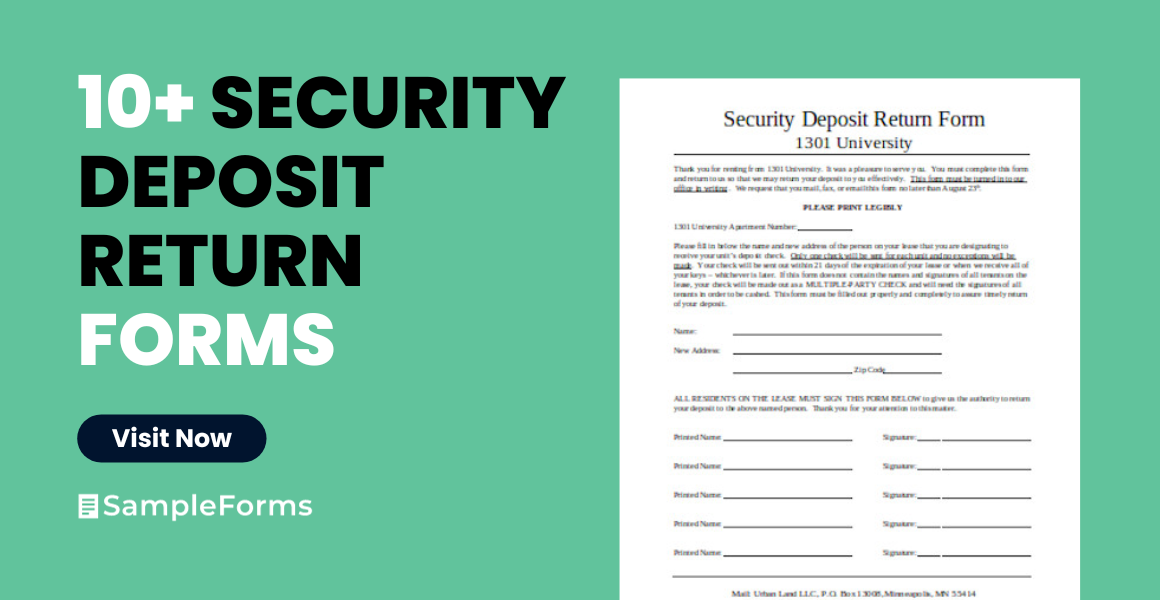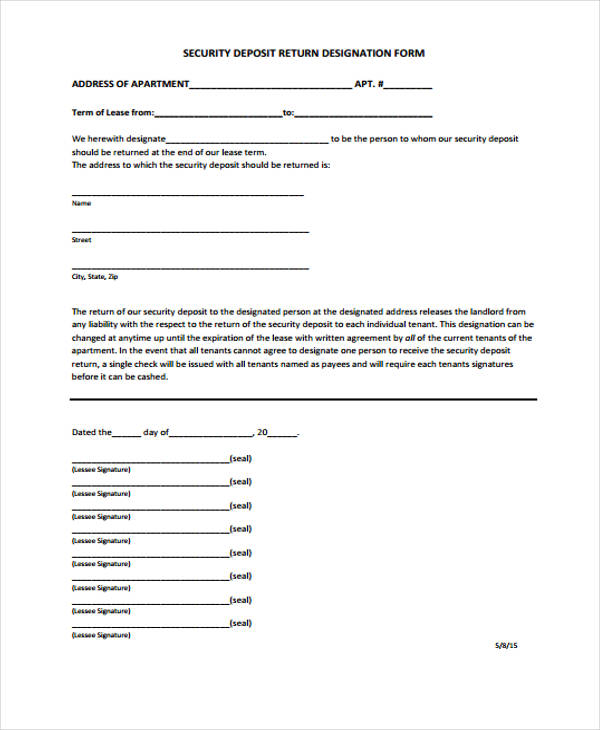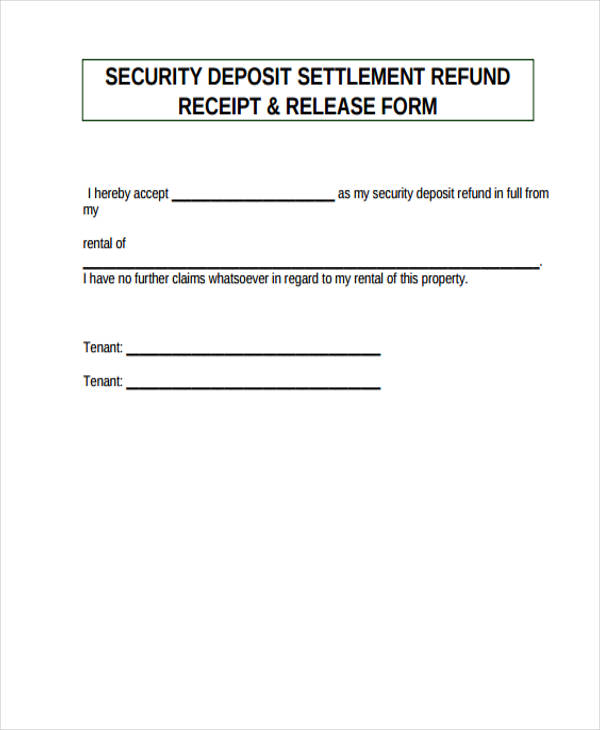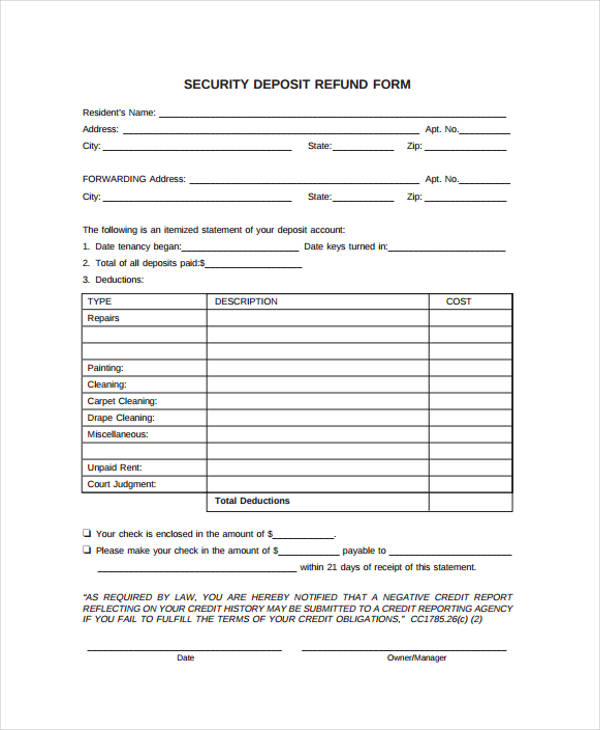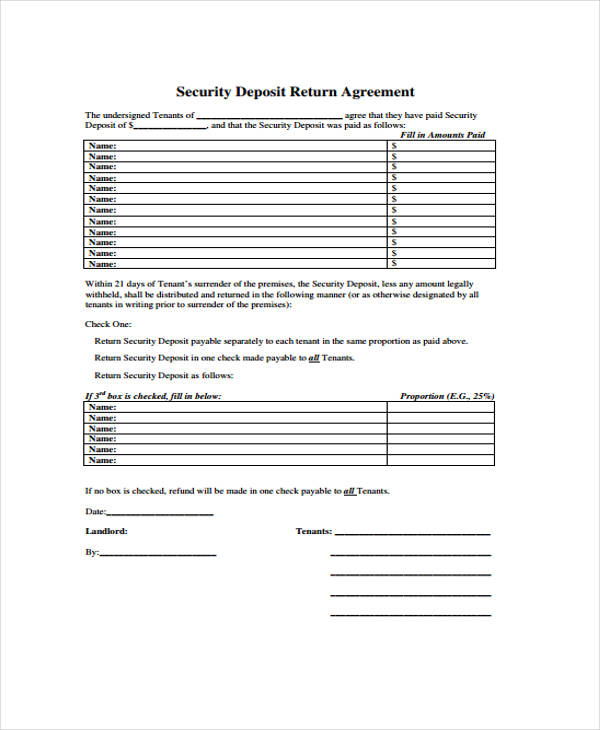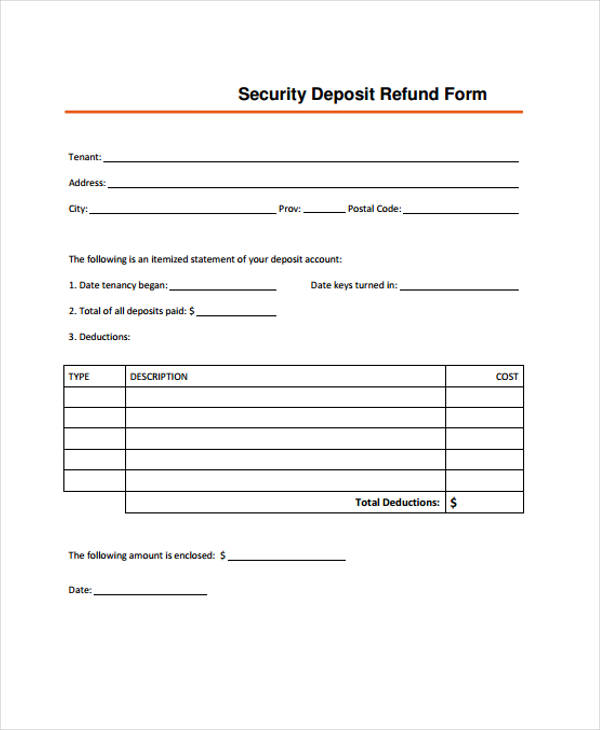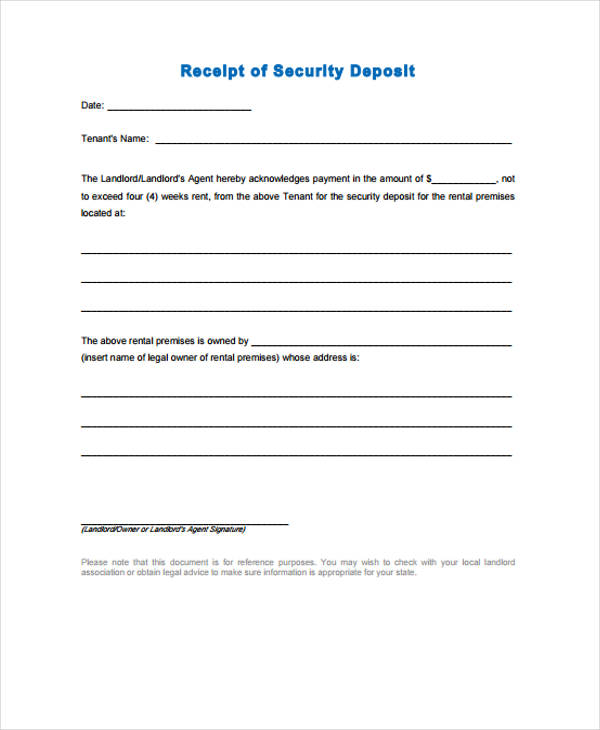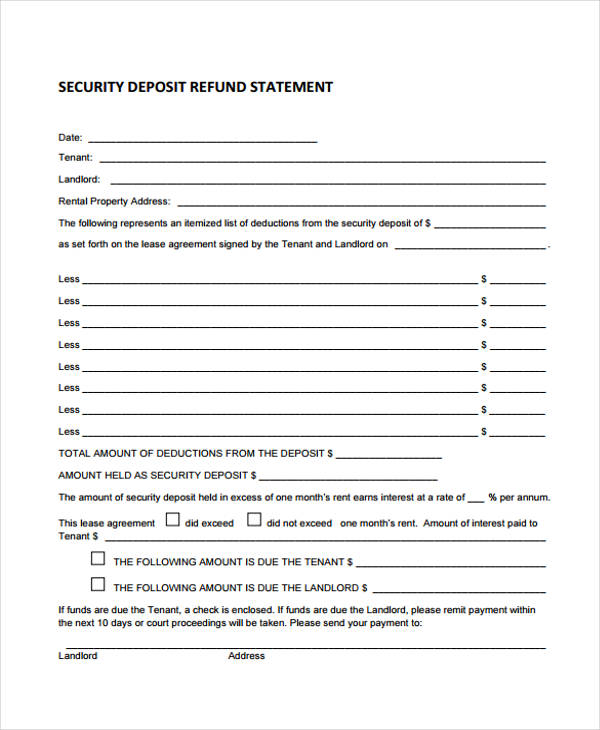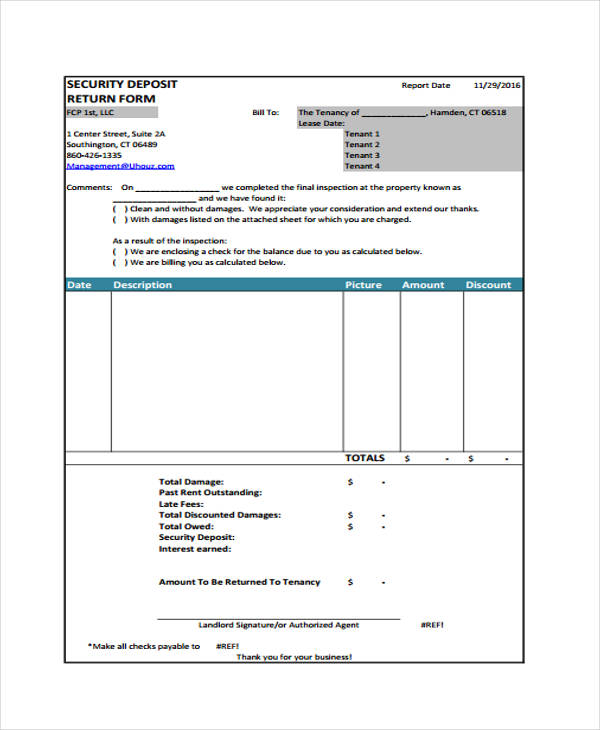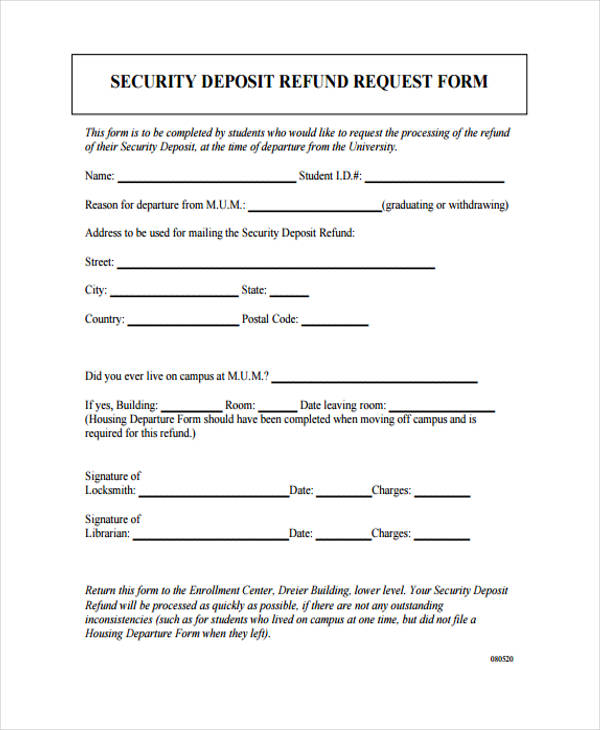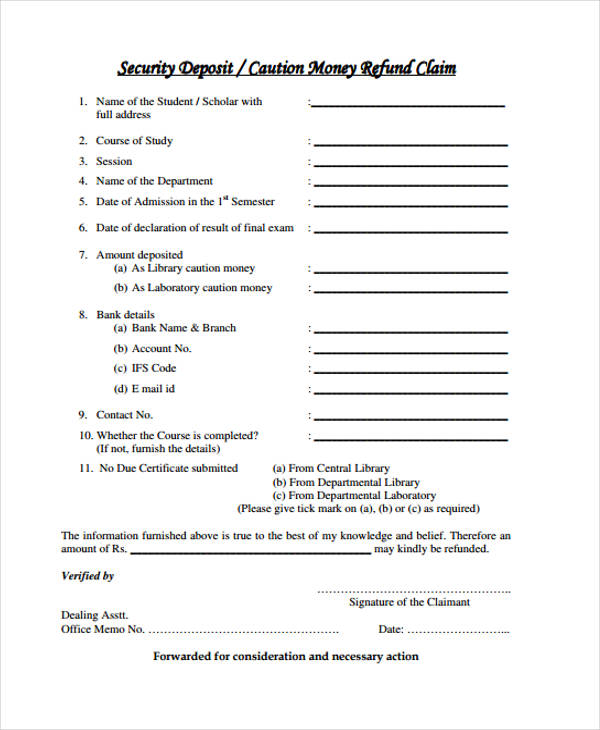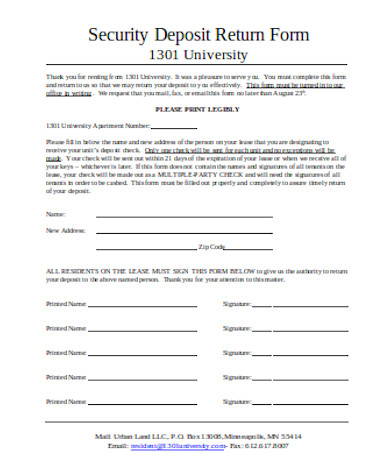House-hunting can be such a chore depending on where you live and your budget. You have to consider a lot of things like the rental’s location, the monthly rent, the terms of the rental/lease agreement, and even the amount of security deposit required. A property may seem the perfect place for you and when the landlord suddenly requires you to sign a security deposit form for a humongous amount, you just bite off your tongue and pay for it.
So fast forward to two or three years later, your lease agreement is up and you have somehow matured in your house-hunting ways. You now await the return of your security deposit so that you could use it to pay for a more affordable and practical rental. But now, the question is: Will you receive your security deposit back?
Security Deposit Return Designation Form
Security Deposit Return Receipt Form
Free Security Deposit Refund Form
Security Deposit Return Agreement Form
Tenant Security Deposit Refund Form
What is Security a Deposit?
A security deposit is any amount of money given to your landlord at the start of your lease term as a form of guarantee against future rental issues. The amount of security deposit greatly varies between different types of properties, its location, and the existing rent control laws of that state or country.
Typically, a security deposit is one-half of the place’s monthly rent. To illustrate, a loft apartment in affluent side of the town may rent out for $2000 per month and will require $1000 of security deposit. Note that this rule is not always practiced by all landlords.
When Are Security Deposits Returned?
According to housing and rent control laws, security deposits may be returned to the tenant when his/her tenancy agreement ends as long as the money has not been fully spent for repairs or for compensation to damages caused by the tenant on the property.
Landlords and property managers will issue you a security deposit return form detailing the amount they have spent to repair the place and any remaining amount from the security deposit. In some lease agreements, the security deposit may also be used as the final month’s rent so you do not have to pay for it anymore.
Landlord Security Deposit Receipt Form
Security Deposit Refund Statement Form
Security Deposit Return Form Example
Security Deposit Return Request Form
Free Security Deposit Return Claim Form
General Security Deposit Return Form
Guidelines for Ensuring Your Security Deposit Is Returned
If your lease agreement does not include using your security deposit as a final month’s rent payment, you would most certainly get back your security deposit when you lease ends. That is an easy thing to say, but it can be difficult to actually accomplish.
Read on below for a few tips on how to ensure that your security deposit is returned to you:
-
Maintain rental’s cleanliness and orderliness at all times. It is part of standard lease agreement formats for tenants to maintain cleanliness in their properties. This not only promotes better living situations but it can also benefit you in the long run in terms of having your security deposit refunded.
-
Have a good relationship with your landlord. Maintaining a good relationship with your landlord can work miracles when dealing with them at the end of your lease agreement. Landlords have the power to give back the security deposit and they can create any (almost legitimate) excuse for not giving it back. Short of filing a court case for this issue, it’s much better to avoid having a grudging landlord from the very start.
-
Follow landlord’s policies. During your stay at any rental property, make sure to adhere all the rules set down in your agreement lease. These may include no loud noises during weekdays, no parties, no pets, etc. As long as you follow this and not be a headache to your landlord, your security deposit is safe.
-
Repair any damage on the property that you caused. Security deposits are used when making fixes on rentals that does not stem from the natural wear and tear of the property. These expenses are detailed on security deposit refund forms given back to you. If, for example, you have accidentally drilled holes on the walls, it’s better to fix them before your lease ends. Issues like these can be easily remedied and do on your own so that you will not risk forfeiting your security deposit.
